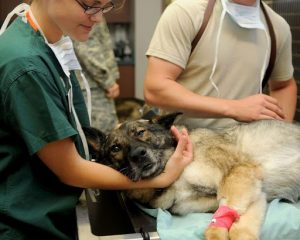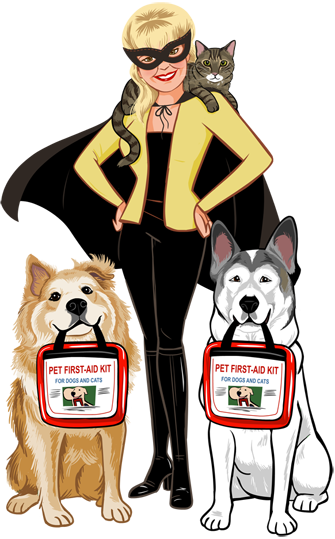
Is your pet dog not feeling well? Or is your cat showing signs of irritability or nausea? If you are worried, and this is the first time that your lovable cat or dog has shown these kinds of behaviors, it might be the best time to visit a veterinary clinic in Abbotsford, British Columbia, if that is your neck of the woods! Read more information about veterinary medicine at this website.
If you visit your veterinarian regularly for routine care, then you are doing what every pet parent should. Additionally, you are likely making sure that your pets are getting their vitamins, their weight is normal, and that they are regularly screened for any illnesses in your area. It’s always better to be proactive than to anxiously wait in the lobby of a veterinary clinic hoping for a cure for allergies, an infection or whatever ails your pet. In spite of the best care however, sometimes emergencies happen!
Most Common Emergencies that Require Veterinary Care
- Vomiting
Most canines vomit and experience diarrhea at some point in their lives. A lot of things can cause these medical symptoms of an underlying problem. If you notice that your dog has vomited once or twice, but you don’t notice anything else unusual, observe him for 24-hours without panicking as it is likely he will return to normal if you rest his tummy from all food, provide plenty of water and ask your vet about an over-the-counter antacid.
If the vomiting however, happens more than once or twice in 24-hours and/or if your dog seems weak or displays other symptoms, get to your vet promptly! An abundance of drool and excessive swallowing of saliva could mean your dog is about to vomit. Upset tummies can be caused by motion sickness, spoiled food, infections, or even chronic diseases. It is best to consult the nearest Abbotsford veterinary if your dog continues to vomit for an extended period or anytime you see blood or mucus in the vomit, do not delay!
- Limping
If you notice your cat is having difficulty walking, it could be a sign that she has strained, torn or fractured a joint, bone or muscle! You should notice a change in her normal gait that demonstrates she is feeling pain when walking. Testing and treatments, including x-rays, are available to determine how severe the damage is and what the best course of action would be to help your ailing kitty, no matter her age.
Limping can be the result of arthritis, ligament ruptures, growth abnormalities, bone tumors, spinal problems, and muscle soreness. Medical advancements provide non-steroidal, anti-inflammatory (NSAID) medications that can relieve pain for your cat. These NSAIDs are used commonly for cats that experience chronic arthritis. Some drugs, as well as supplements, can be administered to improve the health of the joints. Treatments vary, so it’s best to visit the clinic as soon as you notice your cat is uncomfortable.
- Coughing
When your pet is coughing, it can be distressing to you and stressful on his or her system. Coughing can be a non-specific symptom that can stop in a matter of days, a minor irritation however, some coughs require further assessments, tests, and urgent treatments as they can lead to something worse. If the cough doesn’t resolve quickly, you should seek competent medical care. There can be an underlying condition that requires expedient treatment such as heart disease, asthma, lung disease, blockage in the trachea, or upper respiratory tract infection. Read more here: https://emedicine.medscape.com/article/302460-overview.
If your pet has already been diagnosed with congestive heart failure, he or she may be required to take furosemide by your veterinarian. You MUST pay attention to the duration and time of day when coughing is at its worst. This information might be helpful to your veterinarian. Tests such as heartworm antigen testing, complete blood counts, and cervicothoracic radiographs may determine the cause. There is also airway nebulization that can clear away mucus if the cough is respiratory in origin. Confide in your pet’s medical expert as to the best treatment. 
- Changes or Loss of Appetite
The amount of food and water that your pet consumes can be an indicator of their current health. There are a variety of reasons why your pet dog or cat won’t eat. These can include illnesses such as liver problems, cancer, and other system infections. Another factor that can contribute to the loss or change of appetite is dental disease. Lots of canines can have difficulty in chewing because of severe gingivitis or gum problems.
What you can do will depend on the cause determined by your veterinarian. Supplements or a change in diet might help your pet meet his nutritional requirements. Discuss options with your vet to make sure your pet is getting the nutrition he needs to be his best. Sometimes just warming the food a little or adding smelling fish oils (Omega 3s) might stimulate your dog’s nose and make him want to eat!
A Final Word
Any change in your pet’s behavior warrants a call to the vet. Symptoms are a sign of something not quite right, but it is your dog or cat’s medical professional who can determine what that is and the best course of action to alleviate the symptoms and help your pet thrive. Make it a priority to find a vet you trust to become your dog or cat’s second best friend (after all, you are his first best friend), and never miss an annual exam as finding a problem early can be a life-saver!










